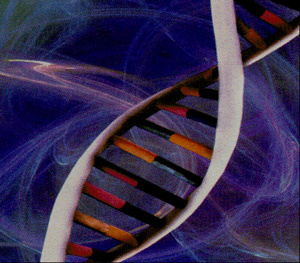It seems now you can eliminate the risk of giving birth to babies with breast cancer genes. The technique, called preimplantation diagnosis (PGD), is used to screen human embryos for breast cancer genes called BRCA-1 and BRCA 2. The screening is conducted on In Vitro fertilized embryos. The embryos without the defective genes are identified and implanted in the womb of the mother. In this way the mother conceives a baby free from the breast cancer causing gene. PGD proved to be a very successful method in eliminating the occurrence of genetically inherited breast cancer from the lineage of a couple from London. They produced 11 embryos. Screening tests were conducted on the embryos by removing a single cell when they were three days old.
In five of the embryos, the breast cancer causing gene (BRCA-1 in this case) was absent. Out of these, two were implanted in the womb of the mother which resulted in a single pregnancy. Now the mother is fourteen weeks pregnant. Incidentally she happens to be carrying Britain’s first baby guaranteed to be free from the hereditary breast cancer gene. Otherwise the conceived baby would have run a greater than 50 per cent chance of developing genetically inherited breast cancer in later life. The 27-year-old British mother was too keen on getting her embryos tested because her 28 year-old husband had tested positive for the gene and his grandmother, mother, sister and cousin had the cancer. It occurred in some of them at the early ages of 27 and 29. A girl child born with the gene runs a 50 % to 85 % chance of developing breast cancer in later life. Since the screening process required IVF (in vitro fertilization) the couple had to adopt this method of fertilization even though they were naturally fertile. They have preserved a couple of healthy embryos for future use.
Women carrying the breast cancer genes ran a higher risk of developing ovarian cancer and male carriers ran a greater risk of developing prostrate cancer.
According to Paul Serhal (medical director of the Assisted Conception Unit at University College London Hospital) PGD gave parents the option of preventing a high risk of transferring breast cancer to their progeny. He also opines that it can be psychologically and emotionally devastating for a young woman to get her breasts removed owing to breast cancer in later life.
Serhel has worked on similar lines with other parents in creating babies free from the genes causing other forms of cancer including the ones causing eye and bowel cancers.
The critics of PGD feel that it is wrong to destroy embryos with the defective genes because female babies having the breast cancer genes run only a chance of developing the disease in adult life. They also feel that breast cancer can be successfully treated in adult life.
But I feel, why take chances when there is a guaranteed method available for eliminating the disease? Moreover, prevention is always better than cure. However, the technology can be developed to include scanning embryos formed by natural fertilization.
via: TimesOnline




